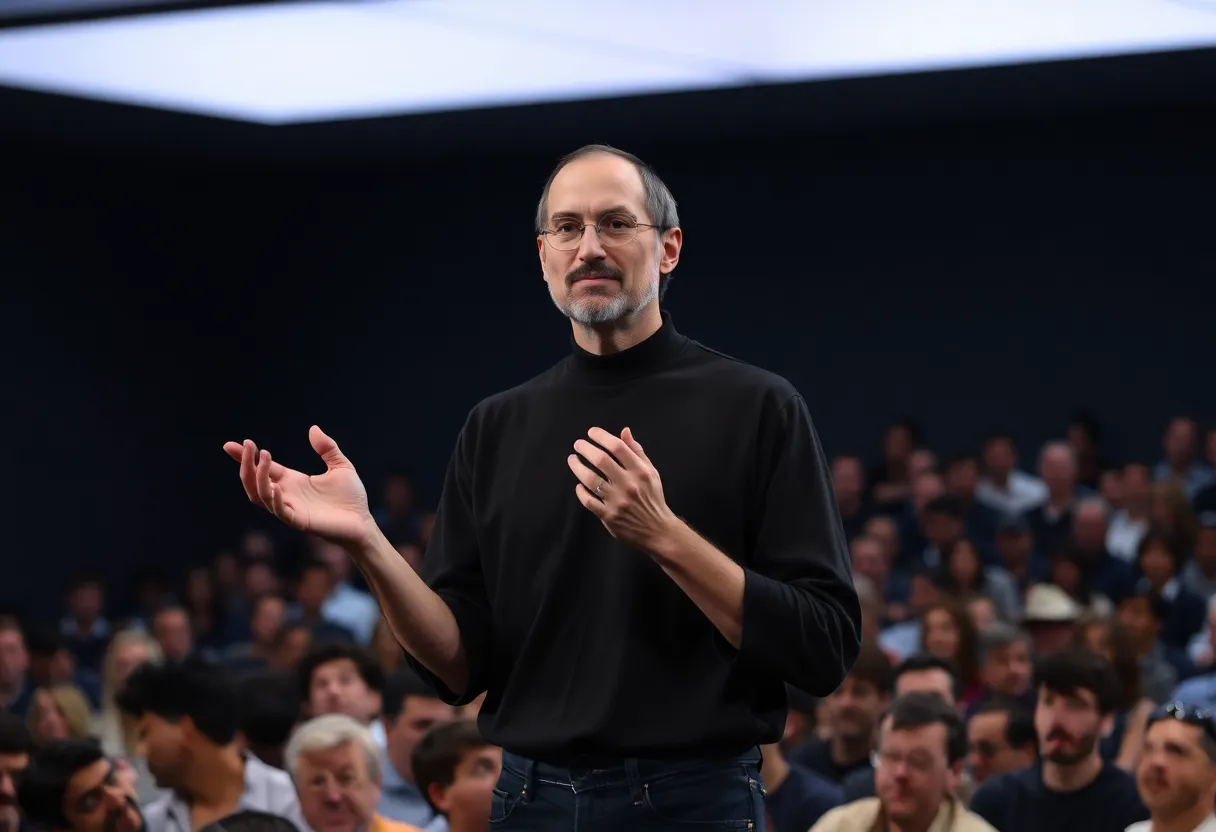

Steve Jobs captivated the audience with his groundbreaking presentations, redefining tech marketing.
Article Sponsored by:
Real Internet Sales is a digital marketing agency located in Columbia, South Carolina. We specialize in website design and development, SEO, social media management, online advertising, AI integration, and workflow automation. Our services also include affiliate marketing and digital strategy.
Real Internet Sales also offer specialized programming for real estate firms, using IDX and RETS feeds to automatically populate MLS properties on their websites for improved property listings and sales. We also work with clients in the restaurant, tourism, and e-commerce industries to enhance their digital presence and streamline operations.
In the vibrant city of Cupertino, where one of the world’s most influential tech companies, Apple Inc., was born, we find ourselves reflecting on the extraordinary marketing strategy of its co-founder, Steve Jobs. When we think about Apple, we often think about innovative products that have changed the landscape of technology. But behind those groundbreaking products lay a marketing approach that was fundamentally different and refreshingly insightful.
From its inception, Apple’s mission has been about “moving the human race forward.” This philosophy is at the heart of how Jobs approached marketing. Rather than conjuring elaborate schemes to convince people of the superiority of Apple products, he looked to embrace something deeper by celebrating creativity and the spirit of innovation. Jobs drew inspiration from successful companies like Nike, which elevated athletes to iconic status through its marketing campaigns. Just as Nike featured exciting athletes, Jobs aimed to showcase Apple as a brand that not only sold technology but inspired individuals to think differently.
One of the most significant shifts Jobs made was transforming Apple’s marketing strategy into one that focused on selling dreams rather than just products. He famously said, “Don’t market products, market dreams.” This perspective encouraged a narrative where the products represented a lifestyle and an aspiration rather than mere gadgets. It indirectly invited consumers to join a community of like-minded individuals who were passionate about changing the world.
During his time away from Apple, Jobs observed how companies often misstep by trying desperately to convince consumers of their product’s merits. He pointed out how the dairy industry struggled for over two decades to get people on board with milk. It wasn’t until they embraced the catchy “Got Milk?” campaign that sales began to soar. By shifting the focus from the product to the experience and showcasing the high-profile stars sporting milk mustaches, they revitalized interest. Jobs recognized this principle and applied it to Apple, aiming to create a similar emotional connection.
In 1997, a pivotal moment occurred when Jobs returned to Apple, where he stripped back layers of unnecessary complexity to reveal its core values. He centered his approach around a simple mantra: those “who think they can change the world” often do. This led to the launch of the “Think Different” advertising campaign, which celebrated the visionaries and innovators who changed the world. With a captivating narrative featuring influential personalities, this campaign established an emotional bond, further embedding the notion that Apple was not just a brand but a culture.
Jobs understood the value of simplicity in both product design and marketing. His belief that less is more transcended Apple’s marketing message and permeated the entire organization, shaping how products were developed and presented. The goal was always to create an intuitive user experience, stripping away any superfluous details that might distract from the core purpose of the product.
Another masterstroke in Jobs’ approach was creating an ecosystem of products that worked harmoniously together. It fostered brand loyalty and encouraged customers to buy into the entire Apple lifestyle. Once someone purchased an iPhone, there was a compelling reason to consider a MacBook, an Apple Watch, or an iPad – because they all complemented each other seamlessly, providing a truly interconnected experience.
Job’s flair for public presentations turned product launches into iconic events. People didn’t just see these occasions as mere announcements; they were spectacles loaded with anticipation. Through storytelling and a bit of theatrics, he would unveil a product as if it were a major milestone in tech history, captivating audiences and grabbing headlines.
Apple’s marketing wasn’t merely about products; it was designed to forge emotional connections. The clever ads resonated with consumers, invoking feelings of belonging to an exclusive club where innovation thrived. Through evocative storytelling and memorable slogans, Apple turned ordinary consumers into loyal advocates.
Steve Jobs’ marketing genius didn’t just sell products; it created a culture. His strategies continue to shape Apple’s ethos and marketing efforts even today. As we look at the thriving community of Apple users and the household name that it has become, there’s no doubt that Jobs’ legacy is deeply entwined with a vision that emphasized dreams, simplicity, and the potential for change. His genius transcended traditional marketing, reminding us that the best way to truly connect with consumers is to market what matters most: the aspirations that drive them forward.

7001 St Andrews Rd #329 ,
Columbia, SC 29212,
United States
Phone: (+1) 803 708 5514
News Summary Columbia, South Carolina, experienced severe weather conditions this Sunday morning as tornado and…
News Summary In a historic execution, Brad Sigmon, 67, was put to death by firing…
News Summary Komar Industries has announced the relocation of its subsidiary, Bace, from Charlotte, NC…
News Summary On March 21, 2025, a mass shooting at Young Park in Las Cruces,…
News Summary Senator Chuck Schumer is under pressure from fellow Democrats for backing a Republican-led…
News Summary South Carolina residents are bracing for a significant winter weather event with freezing…